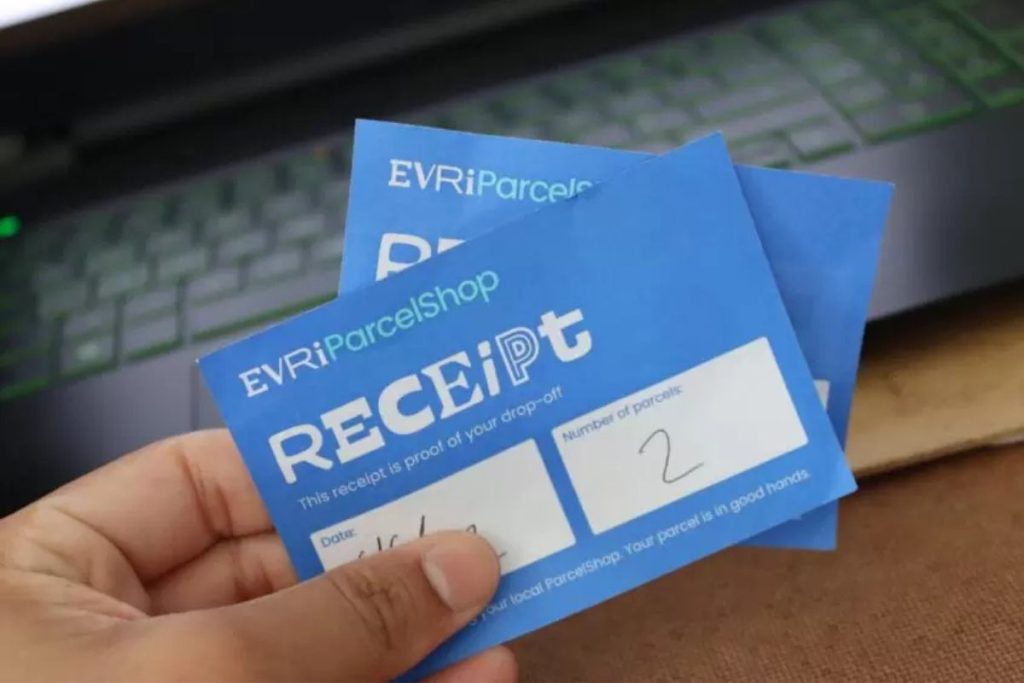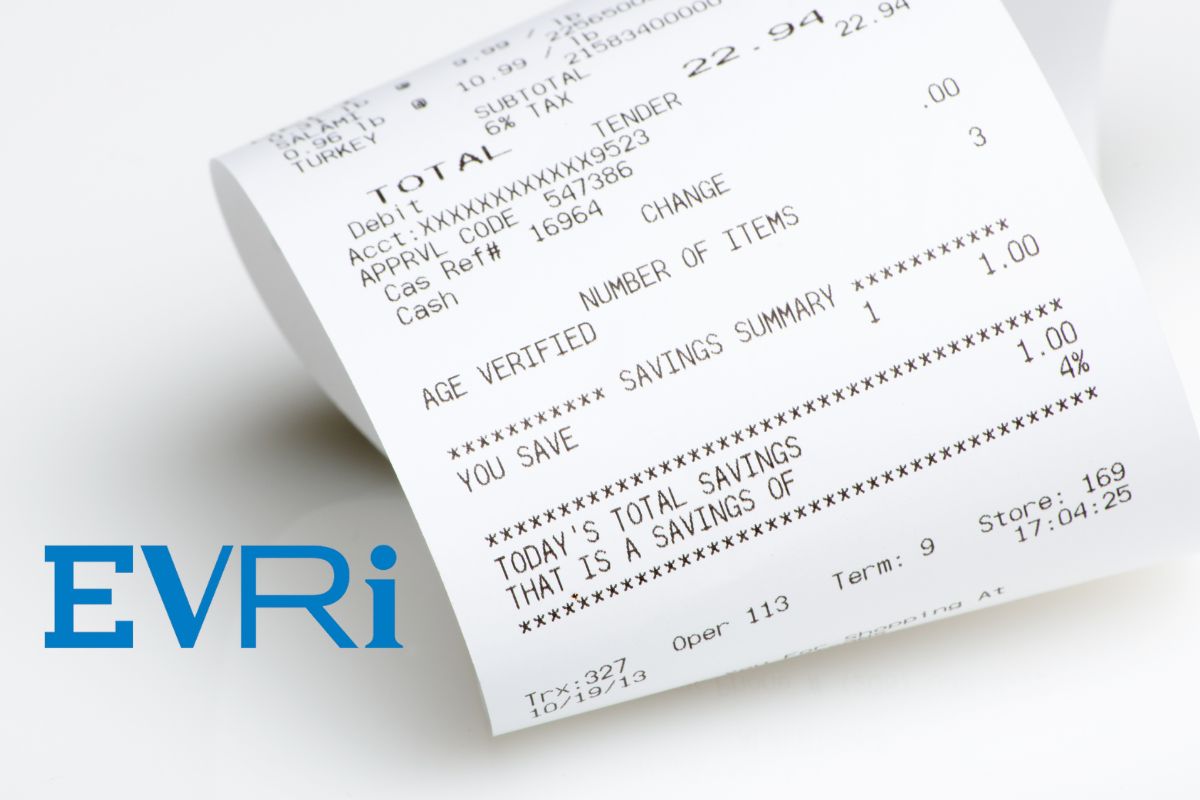What started as Evri’s well-intentioned move towards “net-zero targets” and reducing paper waste has turned into a customer service nightmare that’s been quietly costing customers money for months.
Back in May, Evri announced they were ditching those familiar blue paper receipt slips at ParcelShops in favour of digital receipts sent via email. Sounds sensible enough – save trees, reduce costs, modernise the process.
But three months later, the reality has proven far messier than the glossy press release suggested.
The Digital Receipt Disaster Unfolds
The fundamental problem is simple: the emails often don’t arrive. Customers are dropping off parcels at local corner shops, being told they’ll receive a digital receipt, and then… nothing.
No email, no proof of postage, no tracking number.
For most people, this might just be an inconvenience.
But for the thousands of Vinted sellers, eBay traders, and others running small businesses through online marketplaces, it’s become a financial disaster.
When a parcel goes missing – and with Evri’s track record, that’s hardly uncommon – sellers are left completely exposed. They can’t prove they sent the item, can’t chase Evri for compensation, and often end up refunding buyers out of their own pocket.
One Vinted seller told social media: “Lost three sales this month because parcels didn’t arrive and I had no proof I’d sent them. Evri’s digital receipts just never came through. Cost me over £150.”
Retailers to Evri: “It’s Causing Chaos”
The problems aren’t limited to missing emails. Corner shop owners – who form the backbone of Evri’s ParcelShop network – are finding the new system significantly more time-consuming and prone to error.
Mo Razzaq, national president of the Federation of Independent Retailers, didn’t mince words about the impact: “In a busy store this has caused chaos, with queues building when you have to input a customer’s email address.”
The manual input requirement is creating a perfect storm of delays and mistakes.
Staff members struggling with unusual email addresses, customers spelling out Gmail accounts letter by letter, and the inevitable typos that mean receipts disappear into the digital void.
Premier retailer Suril Patel highlighted the operational impact: “It’s a long process already compared to Yodel, and now they’ve put that extra step in which has taken more of my staff’s time and caused longer queues.”
Even more concerning, some shop owners are simply not bothering with the email collection process at all, leaving customers completely in the dark about whether they’ll receive any proof of postage.
The Evri Return Nightmare
The receipt chaos extends beyond marketplace sellers to ordinary customers returning items to retailers.
Without proof of postage, customers are finding themselves unable to claim refunds when returns go missing.
Traditional retailers typically require proof that items were sent back within their return windows. No receipt means no refund – even if the customer did everything right.
This puts customers in an impossible position: trust Evri’s digital system (which may not work), or choose a more expensive courier just to get a reliable paper receipt.
Nisa retailer Sukh Gill summed up the practical problems: “We’ve seen instances where details get misheard or staff members can’t understand the email address correctly or inadvertently make an error, which has caused customers to come back into stores because they haven’t received their email receipt.”
Evri’s Response: “Everything’s Fine”
Despite the mounting complaints, Evri has largely stuck to its original script about the benefits of digital receipts.
An Evri spokesperson maintained that email addresses “will be auto-filled wherever possible, so there will be no difference in time taken.”
The company has emphasised the environmental benefits and claimed the change will “improve the customer experience with quick access to tracking.”
But the reality on the ground tells a different story.
The auto-fill functionality appears to be working sporadically at best, and the “improved customer experience” is hard to find when customers can’t even prove they sent their parcels.

A Pattern of Digital Failures
This latest issue fits into a broader pattern of Evri’s struggles with digital systems.
The company has faced ongoing complaints about tracking updates that make no sense, delivery notifications for parcels that never arrive, and an app that frequently crashes.
Consumer rights expert Martyn James warned back in May that digital receipts would “go down very badly indeed” given the lack of public faith in package delivery companies.
His prediction appears to have been spot on.
The Cost of Going Green
There’s cruel irony in Evri’s environmental messaging around this change.
While the company talks about reducing paper waste and hitting net-zero targets, the practical result has been customers choosing more expensive, more reliable couriers – potentially increasing the overall carbon footprint as people avoid Evri’s “eco-friendly” option.
The move also comes against the backdrop of Evri’s record profits while simultaneously reducing courier payments – making the cost-saving element of digital receipts particularly galling for affected customers.
What Can Customers Do?
For now, customers using Evri ParcelShops are stuck with a system that may or may not provide proof of postage.
Here are some practical steps to protect yourself:
Before dropping off: Take a photo of your parcel with the address label clearly visible, and screenshot your phone’s time and location data.
At the shop: Ask the staff member to confirm they’ve successfully entered your email address and that the system has accepted it.
Follow up: If you don’t receive a digital receipt within an hour, contact the ParcelShop immediately while you can still prove you were there.
Consider alternatives: For high-value items or important returns, consider using Royal Mail or DPD services that still provide paper receipts.
The Bigger Picture
This digital receipt debacle is just the latest chapter in Evri’s ongoing struggle to provide reliable service while cutting costs.
The company’s proposed merger with DHL may bring operational improvements, but for now, customers are bearing the cost of Evri’s digital transformation.
What started as a sensible environmental initiative has become another example of how cost-cutting measures can backfire spectacularly when not properly implemented.
For a company already rated the worst in the UK for customer satisfaction, the digital receipt disaster suggests that Evri’s problems run deeper than just delivery issues – they’re struggling with the basic infrastructure needed to operate a modern courier service.
Until these fundamental issues are resolved, customers might want to think twice before trusting their parcels – or their money – to Evri’s digital systems.
Search for more information on essential services and delivery companies in our couriers section or check our retailer guides to see which delivery companies your favourite shops are using.




